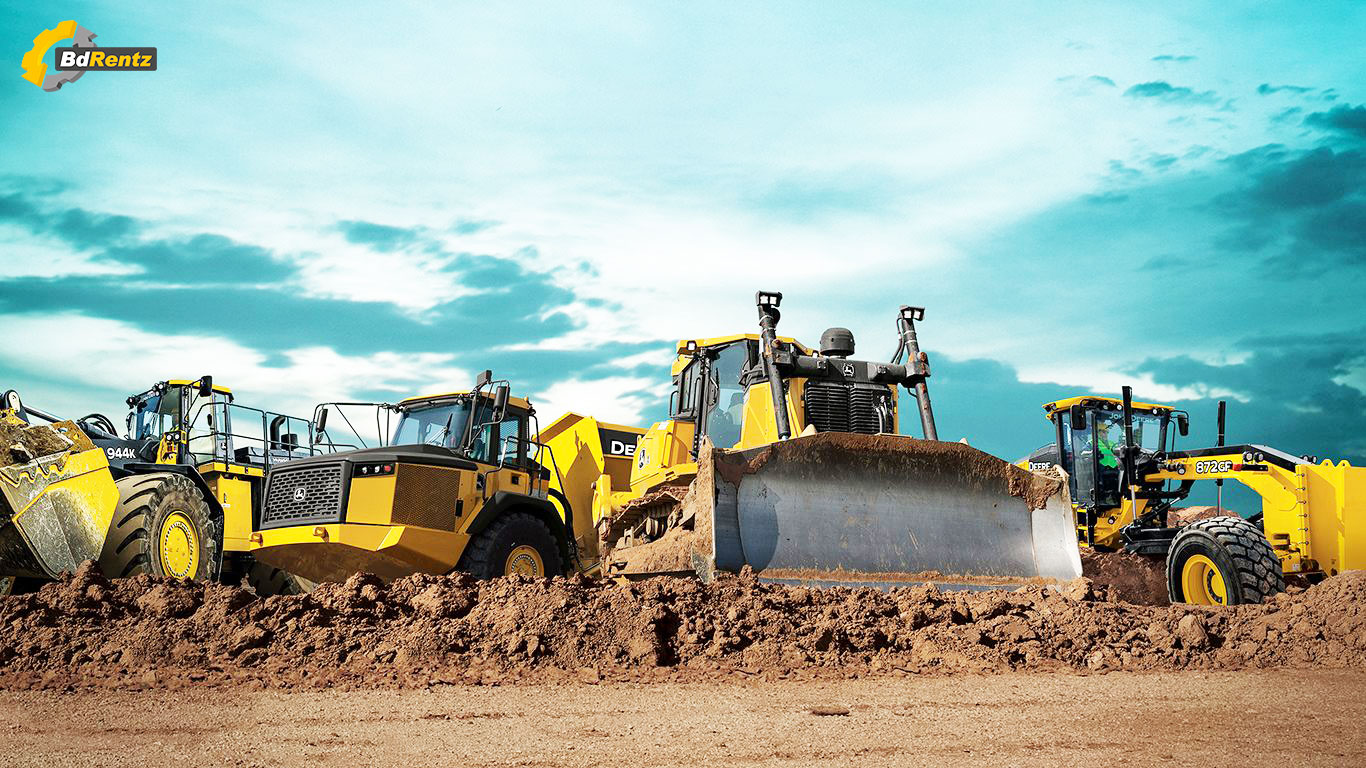Optimize Your Spending Plan by Recognizing the Expenses Related To Building Devices Leasings
Understanding the complete extent of expenses related to building equipment services is crucial for optimizing your budget plan. While the initial rental fee might appear straightforward, numerous added costs-- such as transportation, fuel additional charges, and maintenance-- can promptly collect, affecting your monetary preparation. Additionally, recognizing numerous fees and the intricacies of rental agreements can assist avoid unanticipated financial worries. What strategies can be utilized to properly take care of these expenses and make certain a more reliable rental experience?
Introduction of Rental Expenses
When taking into consideration construction equipment services, comprehending the linked costs is extremely important for efficient budgeting and task preparation. Rental expenses can vary substantially based on a number of factors, including equipment kind, duration of rental, and place. The first rental charge usually mirrors the devices's market need and its associated operational capacities, influencing the general expense.
Along with the base rental price, ancillary expenses might arise, such as transport charges, fuel additional charges, and maintenance fees. It is important to make up these extra expenditures to accurately examine the total expense of renting out equipment. Additionally, the rental duration can impact rates; longer rentals may get affordable rates, while short-term services might incur greater day-to-day costs.

Break Down of Rental Prices
A comprehensive understanding of rental rates is important for specialists and job managers aiming to optimize their budget plans. Rental rates for construction equipment typically include a number of parts, consisting of base rates, time-based charges, and use costs.
Base prices are the core costs connected with the rental of the equipment, often figured out by the kind and dimension of the machinery. These prices can differ substantially, influenced by elements such as equipment need, schedule, and regional market fads. Time-based fees, which may be daily, weekly, or monthly, offer to fit different project timelines and rental periods.
Furthermore, rental prices might include use charges, which apply when equipment is made use of beyond a defined threshold, guaranteeing that the rental firm can represent wear and tear. Seasonal need changes can also impact rental prices, with peak building seasons generally regulating higher rates.
Additionally, understanding the rental firm's policies pertaining to maintenance and insurance can supply further understanding into the total cost framework. By analyzing these elements, professionals can make enlightened decisions, ensuring the choice of rental tools aligns with both task requirements and spending plan restrictions.
Additional Charges to Take Into Consideration
Understanding the complexities of added costs is essential for specialists to handle their total rental costs properly. Past the standard rental rates, link various supplemental fees can significantly impact the total cost of equipment rental. These fees typically consist of shipment and pickup fees, which can vary based upon range and logistics associated with transporting the equipment to and from the job website.
In addition, some rental firms might enforce fuel surcharges if the equipment is returned with less fuel than when rented. It is likewise necessary to recognize prospective cleaning fees, especially for specific equipment that requires thorough upkeep after usage.

Completely evaluating the rental agreement and making clear these extra fees ahead of time can assist professionals make sure and find more avoid unexpected prices that budgets continue to be undamaged throughout the project lifecycle.
Repair And Maintenance Costs
Normal maintenance and repair expenditures are commonly neglected variables that can substantially influence the general cost of building and construction equipment leasings. When renting devices, it is crucial to think about not just the rental charges yet also the potential expenses related to keeping the equipment in optimum operating condition.
Many rental companies include fundamental upkeep as part of the rental contract; nonetheless, much more considerable repairs or unforeseen failures can result in extra costs. It's important to review the rental contract very carefully to recognize what upkeep solutions are covered and what responsibilities fall on the renter.
Moreover, tools that is not properly maintained can lead to inefficiencies on duty site, potentially triggering heavy dolly rental hold-ups and boosting task costs. To alleviate these dangers, it is suggested to perform normal examinations and keep open interaction with the rental provider relating to any issues that occur throughout use.
Insurance and Liability Costs
Insurance policy and responsibility expenses are important elements that can substantially affect the general expense of construction equipment rentals (scissor lift rental). These expenses ensure that both the rental firm and the customer are safeguarded from prospective financial losses arising from crashes, damage, or burglary throughout the rental period

Additionally, clients ought to know any type of deductibles or exemptions in the insurance coverage, as these can affect possible out-of-pocket expenditures. Comprehending the conditions of any type of insurance policy coverage is crucial to stay clear of unforeseen costs. Eventually, budgeting for insurance policy and liability costs can aid guarantee a smoother rental experience and secure versus financial dangers related to building and construction projects.
Final Thought
In verdict, a thorough understanding of the prices connected with building equipment services is important for effective spending plan monitoring. Eventually, notified decision-making concerning tools services adds to the overall success of construction undertakings.
Rental expenses can vary significantly based on several variables, consisting of equipment kind, period of rental, and place (rental company near me). The rental period can impact rates; longer rentals might qualify for reduced rates, while short-term leasings might sustain higher day-to-day fees
By carrying out extensive research and involving with respectable rental companies, service providers can successfully browse the complexities of rental rates, eventually optimizing their financial sources.
Beyond the typical rental prices, different supplementary fees can significantly affect the complete cost of devices rental. Rental companies commonly give obligation insurance policy that covers injuries to 3rd parties or damages to home, while tools damage insurance coverage can cover the price of fixings or substitute if the leased tools is harmed.